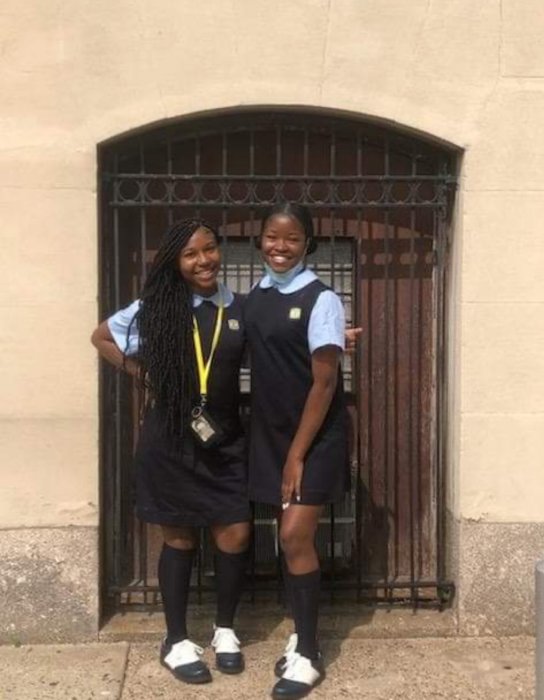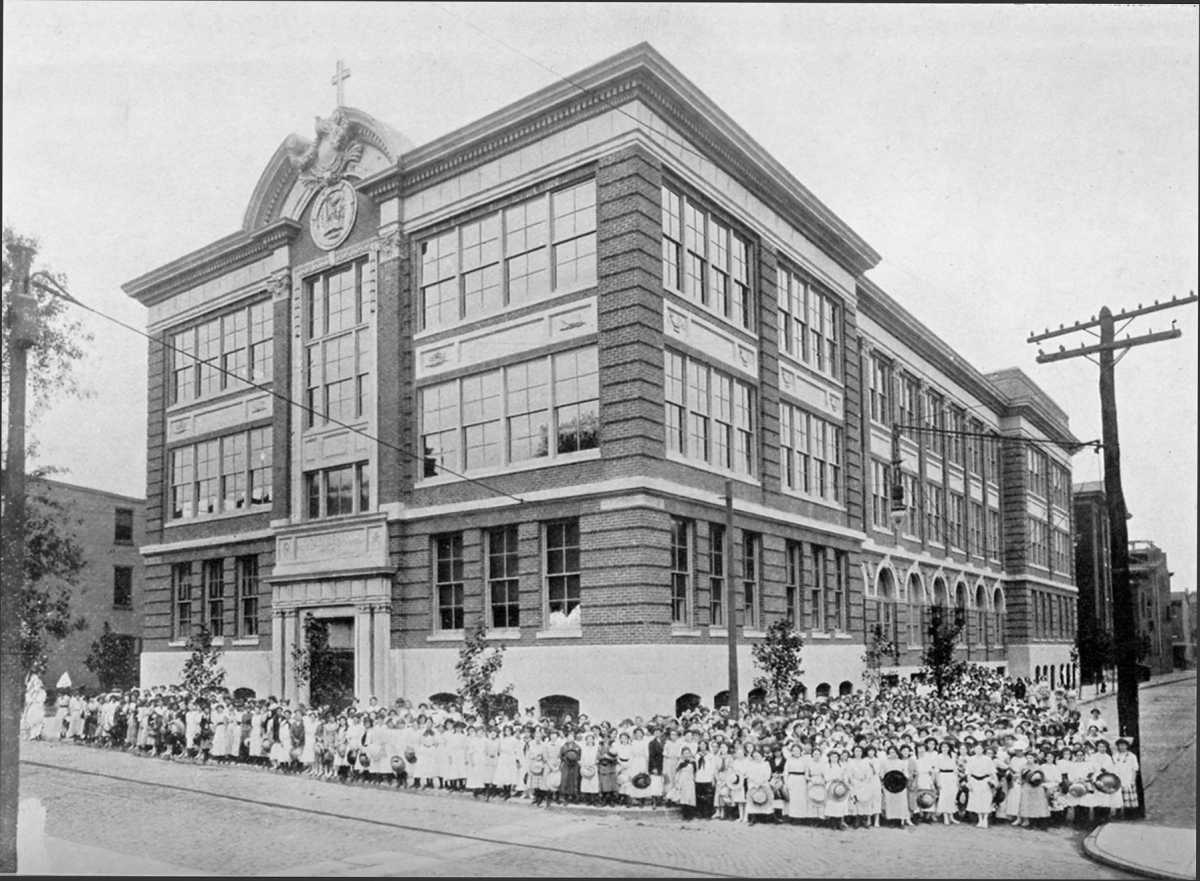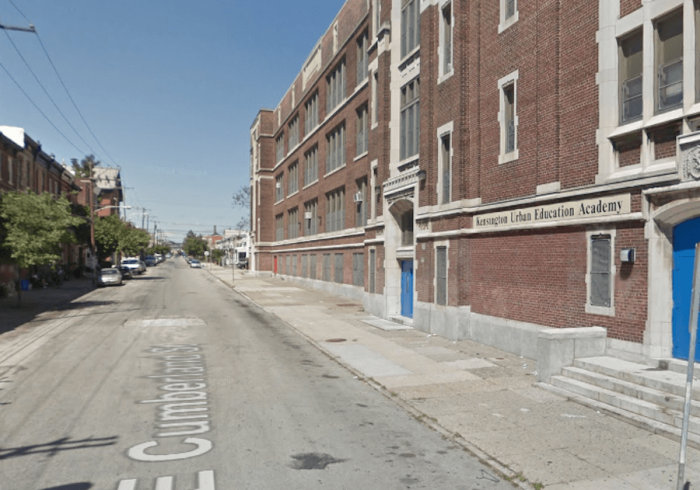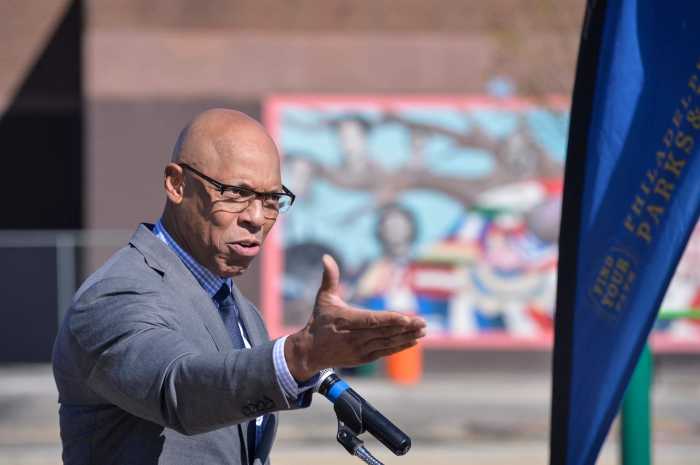Valerie Egrich, 16, hasn’t considered attending another school.
Open houses and virtual events have been offered to students at John W. Hallahan Catholic Girls’ High School, which is slated to be closed by the Archdiocese of Philadelphia in June.
“I’m not moving until anything happens, until other people are moving,” said Egrich, a Hallahan sophomore from Roxborough. “I’m sticking where I am until I find out that the school’s completely closing.”
According to the archdiocese, there’s no question about it. Archbishop Nelson Perez’s decision to close Hallahan “remains final,” spokesman Ken Gavin said.
Nonetheless, a group of alumni, parents and current students have begun a campaign to coerce the archdiocese into reopening the school in the fall. If that fails, they want to turn Hallahan into an independent private school.
“How can you close down an institution that has such, not only local history, but national history?” asked Jennifer Coffey, a member of Friends of Hallahan who graduated from the school in 1994.

Hallahan was founded as the first diocesan all-girls’ school in the country in 1911, before women had the right to vote, Coffey noted.
Church officials announced their intention to close it, along with Bishop McDevitt High School in Cheltenham Township, in November following a “sustainability study” by Faith in the Future, a foundation that oversees the 17 archdiocesan high schools.
The study determined declining enrollment — Hallahan is at 36% capacity — would cause steep tuition hikes if the schools were to remain open, according to the archdiocese.
About 400 girls are enrolled at the school, at 19th and Wood streets in Center City, representatives from Friends of Hallahan told Metro.
Gavin said “all possible alternatives” were considered before church leaders decided to close the schools.
Parents and alumni have taken issue with the announcement, saying, in the past, students were given two years notice before a high school was shut down.
“The girls have got a lot of anxiety about where they’re going to go,” Coffey said. “We’re in enough chaos this year and last year, and to have the (archdiocese) add to that, quite frankly, it’s immoral.”
Friends of Hallahan also wants Faith in the Future to release its full report. Organizers have been denied a meeting with the archdiocese, Coffey said.
Hallahan’s board emerged from a meeting with Perez last month seemingly resigned to the school’s fate.
“All requests of the Archbishop and Faith in the Future were denied,” the board said in a statement.
The other option, establishing an independent Hallahan, would be a massive undertaking that would require Friends of Hallahan to bring in more than $20 million in the first two years, according to a Jan. 15 post on the group’s Facebook page.
Organizers have established a PayPal link, but they say they haven’t launched an aggressive fundraising campaign yet.
Coffey said Friends of Hallahan has generated “tens of thousands” of dollars in donations and is in the process of becoming a 501c3 nonprofit organization.
Friends of Hallahan would like a future independent school to be housed in the current building, though they have acknowledged that they may have to seek out a new campus.
Privatizing Hallahan would “not be feasible,” Gavin said, as the school would still face the same challenges it does now.
Coffey and other members of Friends of Hallahan believe the archdiocese is looking to cash in on the school’s real estate, possibly to fund settlements for the victims of clergy sexual abuse. Hallahan’s building has been evaluated at $30 to $40 million, Coffey said.
“We think the archdiocese wants that property,” she added. “It’s very clear that they’re after money.”
Gavin said the building’s worth was “in no way a factor” in the decision to shutter Hallahan. “To my knowledge, no appraisals have been obtained on the buildings,” he said.

Egrich and Coffey both said Hallahan allowed them to connect with girls of different neighborhoods and from different backgrounds.
Coffey, who grew up in Port Richmond, said the school was an early adopter of STEM education, and it helped set her up for her career. She leads an environmental nonprofit in New Jersey.
“There were just so many opportunities in going to a school with such history and in the location where it was at,” she said. “I was able to really get a deep dive into the sciences and the math that provided a strong foundation for me moving forward.”
For Egrich, picking Hallahan was an easy choice. Her mother, grandmother and aunts had graduated from the school.
She was at the Plymouth Meeting Mall when a friend called her and told her Hallahan would be closing. At first, she didn’t believe it.
“I thought it was due to COVID,” Egrich said. “Then, my aunt called me, and I was in shock, and then, when I got home, I felt really sad and depressed.”






























